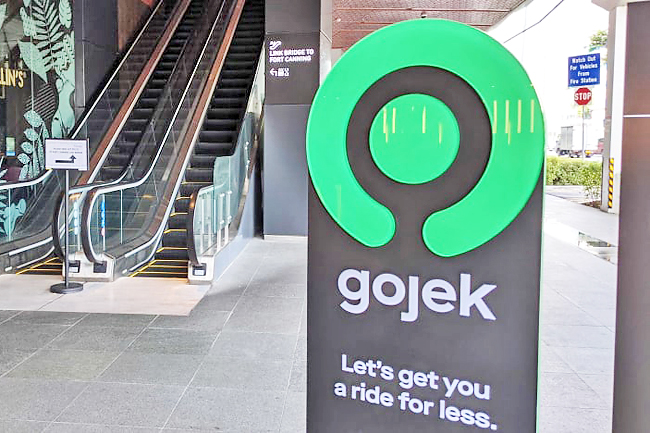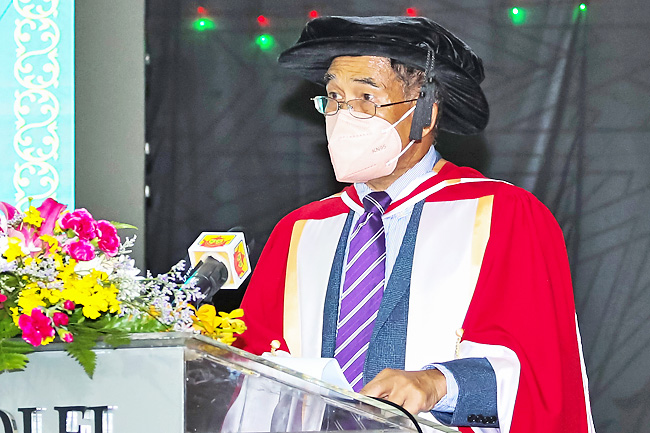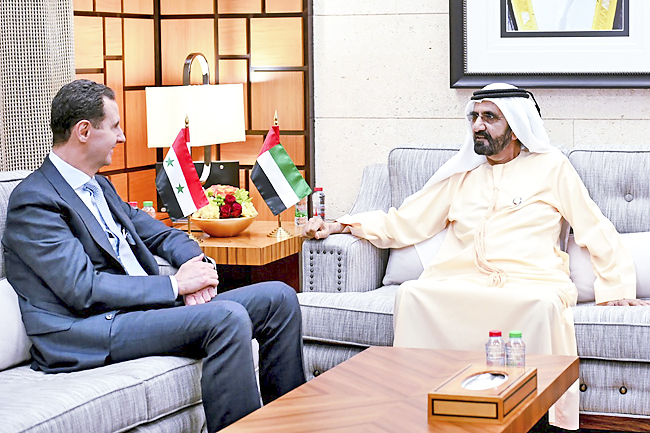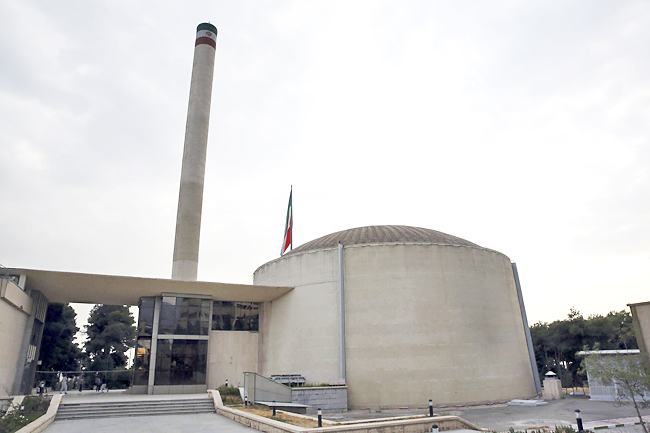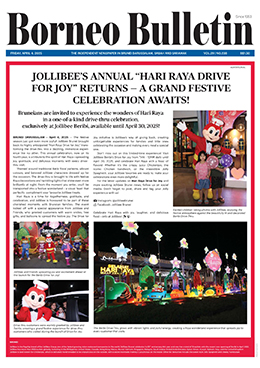Lyna Mohamad
His Majesty Sultan Haji Hassanal Bolkiah Mu’izzaddin Waddaulah ibni Al-Marhum Sultan Haji Omar ‘Ali Saifuddien Sa’adul Khairi Waddien, Sultan and Yang Di-Pertuan of Brunei Darussalam’s Government through its whole-of-nation approach continues to implement digital transformation as one of the nation’s main aspirations.
This was said by Minister of Transport and Infocommunication Dato Seri Setia Awang Abdul Mutalib bin Pehin Orang Kaya Seri Setia Dato Paduka Haji Awang Mohammad Yusof during the Kolej International Graduate Studies (KIGS) 2021 Convocation Ceremony yesterday.
The need to speed up digital transformation was mentioned in His Majesty’s titah during the 38th National Day celebration. It was also part of the Digital Economy Masterplan 2025.
It is often speculated that digital technology, automation and robotics will affect employment with technology taking over jobs due to higher productivity.
The minister said this is one reason to embrace lifelong learning. For example, with COVID-19 outbreak, many have adapted to the use of e-commerce platform to buy basic necessities.
This has in turn, opened up job opportunities for locals to offer delivery services.
Dato Seri Setia Awang Abdul Mutalib said the 144 graduates are examples of youthful spirit in diligent learning, hard work and motivation.
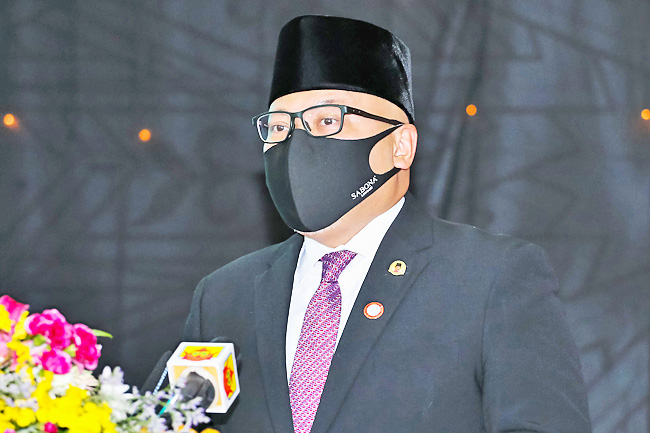
He also commended the college for its proactive approach in offering programmes that embrace digital transformation. The minister said this is welcomed as it will produce youth that are digital and future-ready to bring Brunei Darussalam towards its goal of becoming a Smart Nation.
Dato Seri Setia Awang Abdul Mutalib said the Ministry of Transport and Infocommunications (MTIC) will continue to support programmes that develop skills relevant to the Sultanate’s needs, particularly in manpower and talent development.
MTIC through the Authority for Info-communications Technology Industry of Brunei Darussalam (AITI) worked on programmes to upgrade job hunters and youth’s skills. Among them is Coding.bn that attracted 59 participants, with 39 successfully securing employment.
AiTi also offers Digital Skills Programme for Fourth Industrial Revolution (IR 4.0) for youth looking for jobs in the information and communication technology (ICT) industry.
The minister also said the establishment of Council for Research and Advancement on Technology and Science (CREATES) will play a role in ensuring the development of science, technology and innovation contributing towards nation building and commercialisation of research and development (R&D) projects.
With rapid changes in technology and consumer expectations, the minister called on the graduates to continuously upgrade their skills aside from gaining knowledge and academic qualifications. They should also practise and apply their capabilities whenever possible.
Dato Seri Setia Awang Abdul Mutalib said with creativity and innovation on top of their existing skills and knowledge, they can explore new fields and contribute to the nation’s development.
He said achievement and success are the results of a combination of determination, concerted efforts of administrators, lecturers, parents and the graduates as well as skills and capabilities such as good leadership, teamwork and effective communication.

